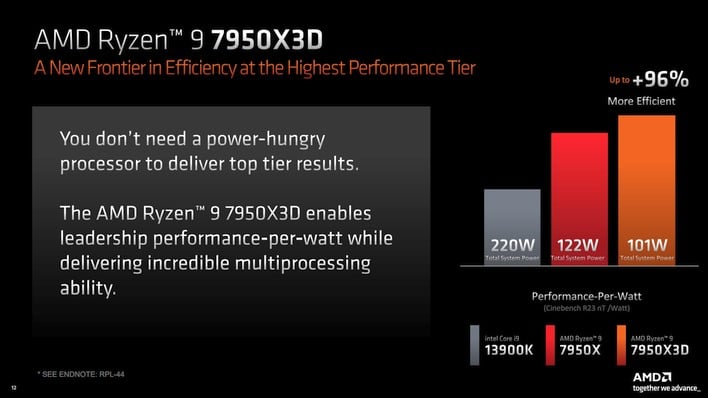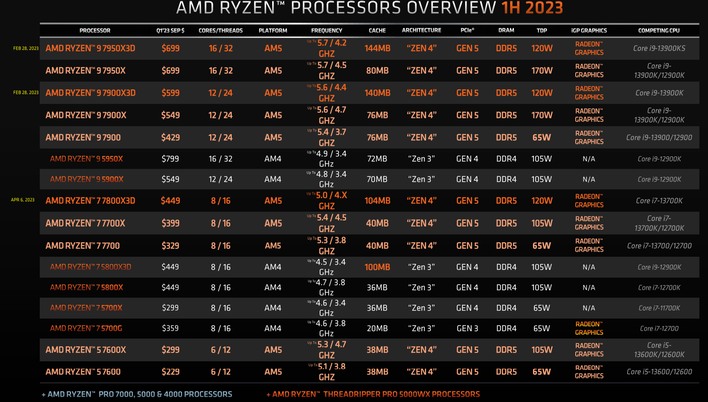AMD Says You Don’t Need A Power-Hungry CPU To Game Like A Champ
In one of its recent "Meet the Experts" webinars for its business partners, AMD presented a bunch of slides with a bevy of information about its new "X3D" products. These slides, unsurprisingly, include lots of comparisons against competitor Intel's processors, some of which are reasonable and some of which are a little spurious.
The claims about power consumption at least have a basis in reality, though. The company presented the slide above, which seems to show the Core i9-13900K drawing quite a lot more power than a Ryzen 9 7950X or especially the 7950X3D. This comparison mentions "multiprocessing ability", and that's correct—the test in question is Cinebench R23.
It's actually not completely clear what's being represented in the chart, because the description says "Cinebench R23 nT /Watt", which doesn't make much sense with values of 220W, 122W, and 101W. The values are marked on the chart as "Total System Power," but that seems unlikely to us; we had no problem pulling 122W on a single core from the Ryzen 9 7950X3D. A full system is likely to pull double that or more in an all-core load. It is true that Intel chips will be much thirstier in an all-core workload, but gaming isn't such a workload, and the peak power consumption is much closer in games between the two companies.
In another slide, AMD directly compares its entire current desktop product stack against Intel's product lineup. This includes both Zen 3-based Ryzen 5000 processors as well as Zen 4-based Ryzen 7000 processors, with and without 3D V-Cache. The Zen 3-based processors are largely compared to Intel's 12th-generation chips, while the Zen 4-based models are put up against 12th- and/or 13th-generation Core processors.
In this chart, the comparisons only really make sense in gaming, for the most part. The Ryzen 9 7950X3D is indeed a credible competitor—and often faster—against the Core i9-13900KS, but the comparisons get fuzzier as you move down the product stack. Intel's 13th-generation Core processors have a multitude of tiny E-cores, and while those don't help as much with game performance, they do help Intel largely dominate in compute-related tasks at a given price point.
The whole point of the "Meet the Experts" webinar was for AMD to convince vendors to stock and sell its products, so we can forgive the company for a bit of self-aggrandizing puffery; everyone does it, after all. Still, much of AMD's efficiency advantage is down to its process technology advantage. Intel just completed development for its 20A fabrication process, and that could turn things around for the blue team. Only time will tell, of course.




